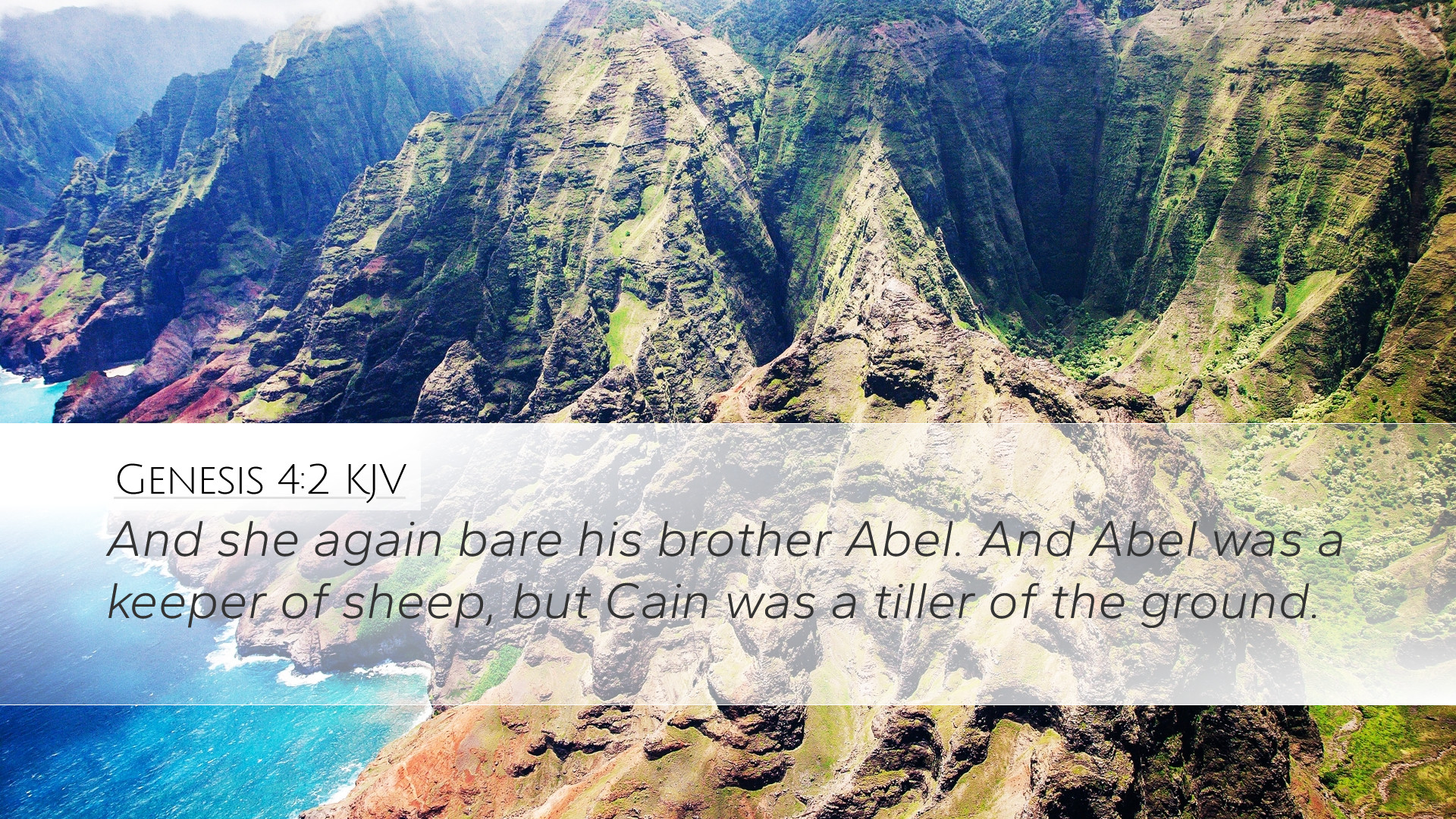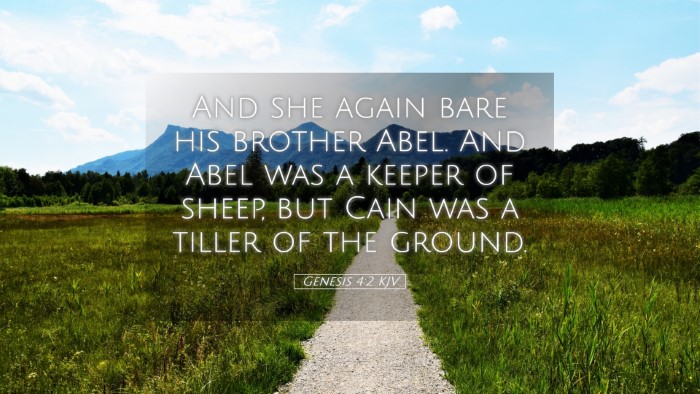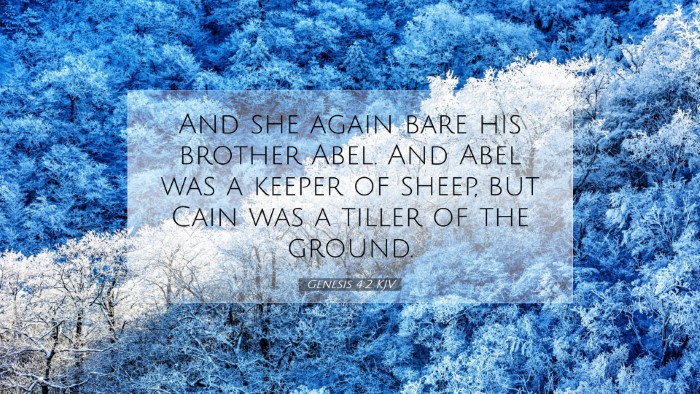Commentary on Genesis 4:2
Verse Reference: Genesis 4:2 - "And she again bare his brother Abel. And Abel was a keeper of sheep, but Cain was a tiller of the ground."
Overview
This verse introduces two significant characters, Cain and Abel, and sets the stage for the narrative of rivalry and consequence that unfolds in the subsequent verses. The contrast between their professions is noteworthy and delves into the deeper theological implications of their significance in God's plan.
Commentary Insights
Metaphorical Significance of Professions
Matthew Henry highlights the divergence in the professions of Cain and Abel, suggesting that the roles they played were not just occupational but symbolic of deeper spiritual truths.
- Cain - Tiller of the Ground: As a tiller, Cain represents the earthly, material aspects of life. His work signifies the cultivation of the land, which is a direct result of the curse from Adam's sin (Genesis 3:17-19). This reflects humanity’s struggle and toil in a fallen world.
- Abel - Keeper of Sheep: Abel's role as a shepherd signifies a more pastoral and nurturing profession. This could allude to the sacrificial system to come, wherein sheep would be offered for atonement, prefiguring the ultimate sacrifice of Christ.
Role of the Family
Albert Barnes notes the significance of this family drama in the context of God's unfolding plan. The introduction of these two brothers into the world reflects not only familial dynamics but also the tensions that can arise from differing approaches to God’s expectations.
- Sibling Rivalry: The differences in their chosen paths set the stage for conflict, illustrating how even within a family, varying spiritual dispositions can lead to envy and strife.
- Label of 'Favor': The emphasis on Abel being a keeper of sheep may also foreshadow the idea of divine preference and the idea of holiness associated with the shepherd, a role used later in scriptures (e.g., Jesus as the Good Shepherd).
Theological Implications
Adam Clarke provides a theological interpretation of this verse that reaches beyond the mere historical narrative. He emphasizes that the distinction between the two professions encapsulates a broader theme of God's desire for genuine worship versus ritual.
- Ritual versus Relationship: Clarke suggests that Abel's offering, which comes from his role as a shepherd, is more acceptable to God not simply due to the nature of the offering itself but due to Abel’s heart and disposition towards God. This indicates a relational understanding of worship, where genuine faith is crucial.
- Human Condition: The contrast also illustrates the human tendency to rely on the works of our hands (Cain) versus the reality of spiritual dependence (Abel). This lays a foundational understanding of grace versus works that reverberates throughout Scripture.
Cultural Context
Understanding the larger cultural context of Genesis helps illuminate the importance of both professions and the significance of the brothers' identity. Barnes notes that in ancient Near Eastern cultures, both agriculture and sheep herding were common, yet the moral and spiritual implications attached to each varied widely.
Practical Applications
This brief verse, while simple, is laden with practical applications for modern readers, including:
- Value of Work: Both professions illustrate the dignity of labor in God’s creation. Every vocation has intrinsic value when performed unto the Lord.
- Heart of Worship: The narrative urges individuals to examine the state of their worship and approach to God—are we offering Him our best, motivated by gratitude and devotion, like Abel? Or are we approaching Him with indifference?
- Interpersonal Relationships: The tension between siblings serves as a reminder of the importance of reconciliation and the dangers of harboring jealousy and resentment.
- Foreshadowing Redemption: This story sets the stage for the overarching narrative of the Bible—God's perfect plan for reconciliation through Christ as the ultimate sacrifice.
Conclusion
Genesis 4:2, while seemingly straightforward, introduces a foundational conflict that echoes throughout Scripture and human experience. The contrast between Cain and Abel invites deeper reflection on worship, vocation, and human relationships. As we consider their story, let us be reminded of God’s desire for authenticity in our walk with Him and among others.


